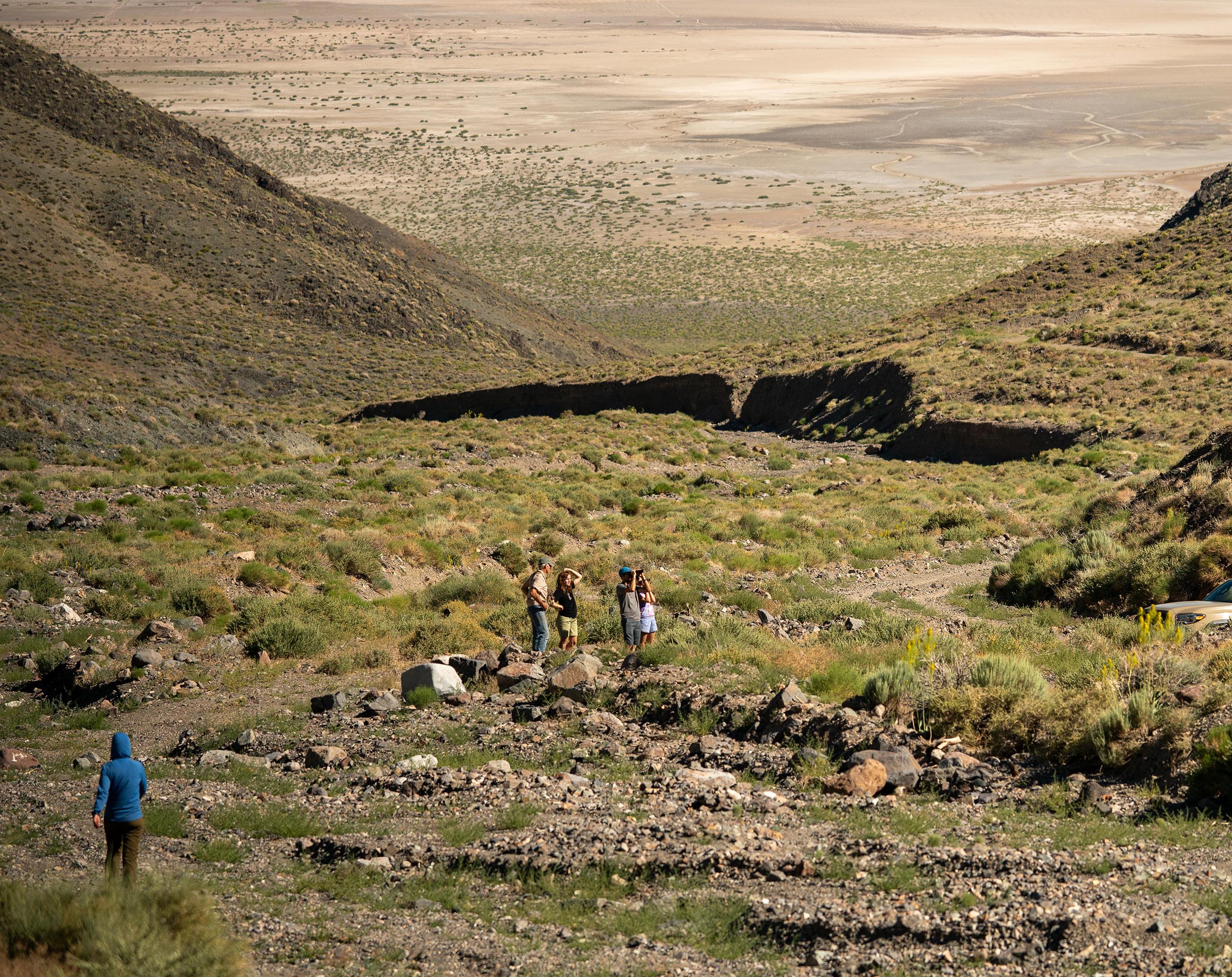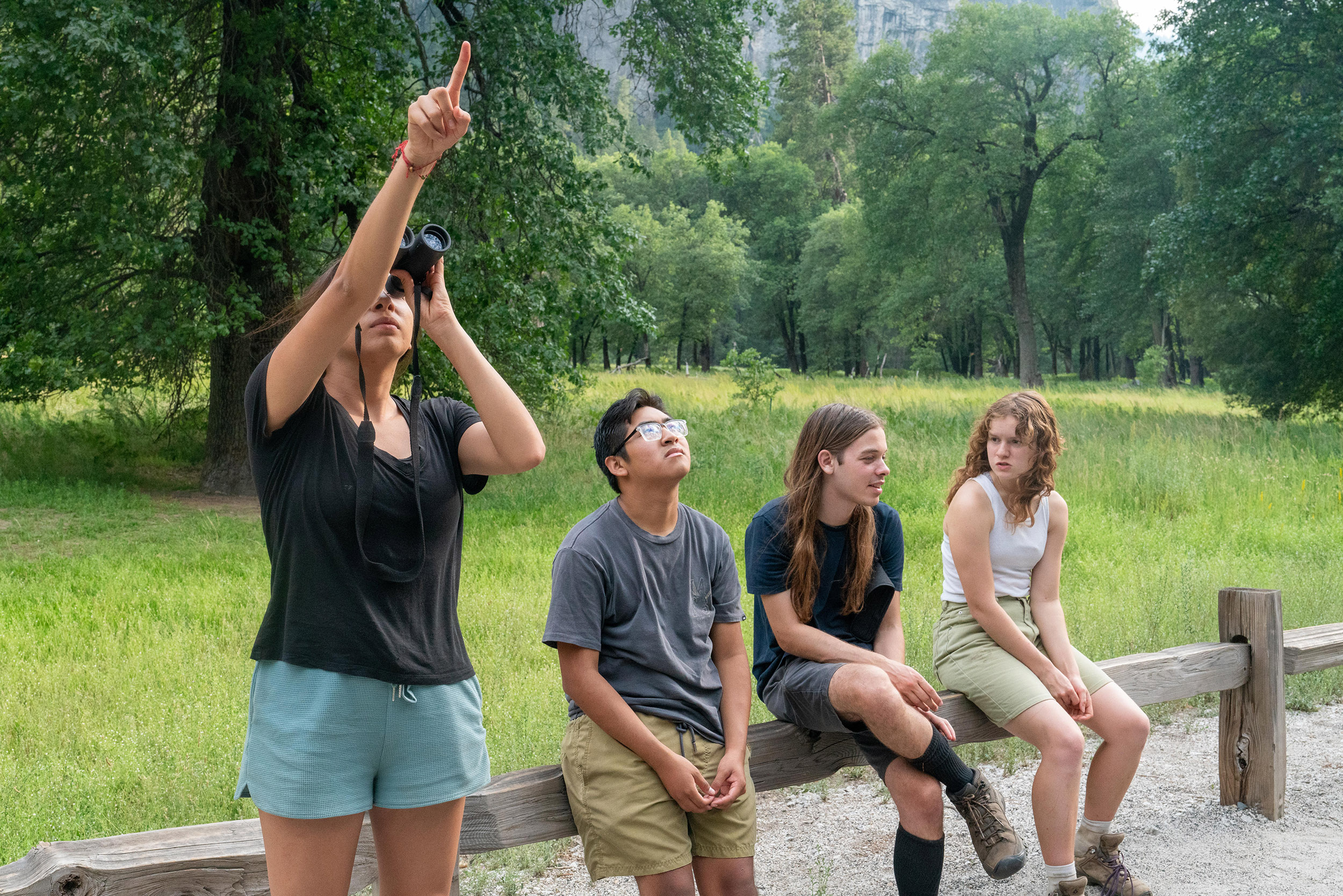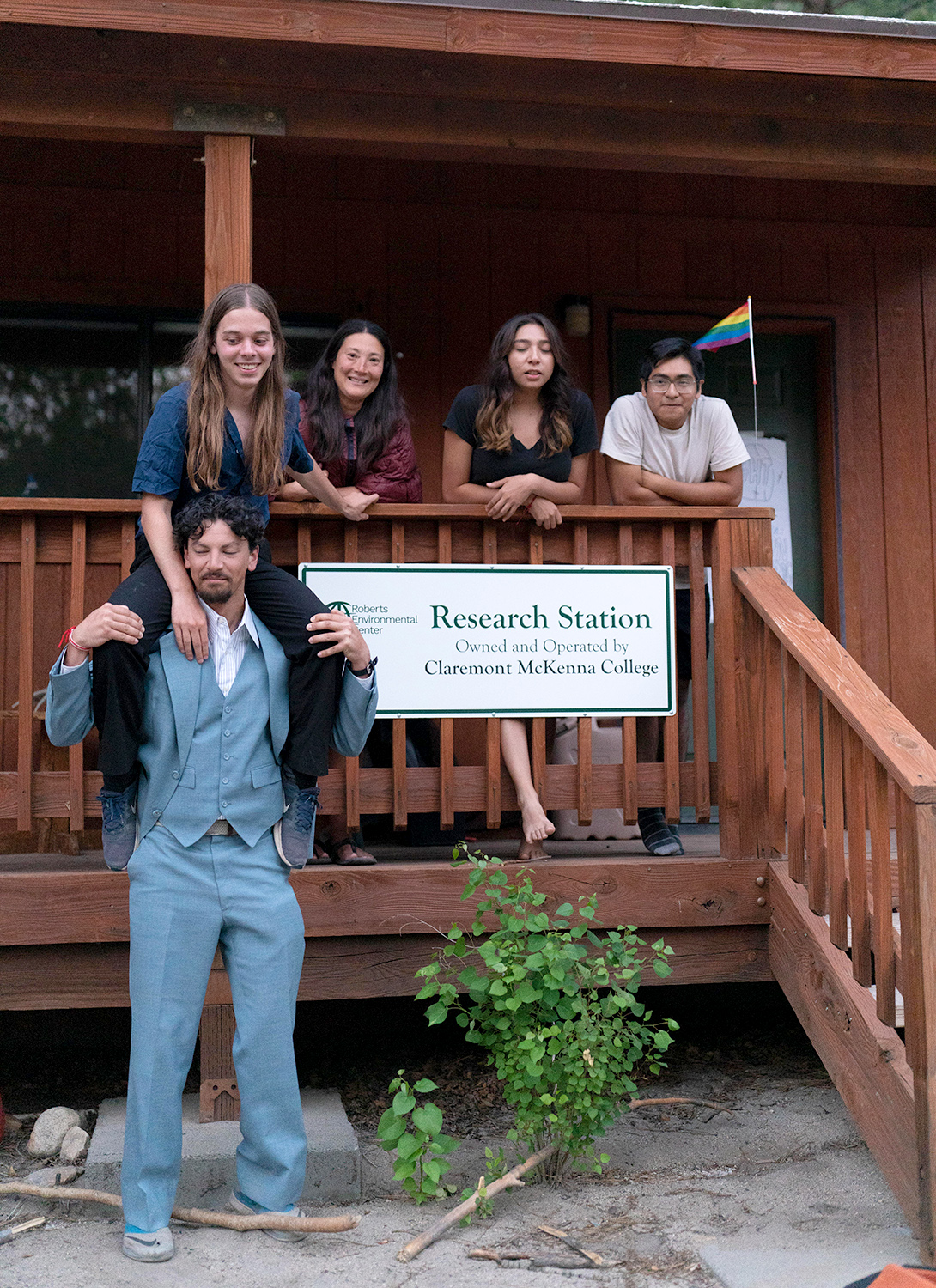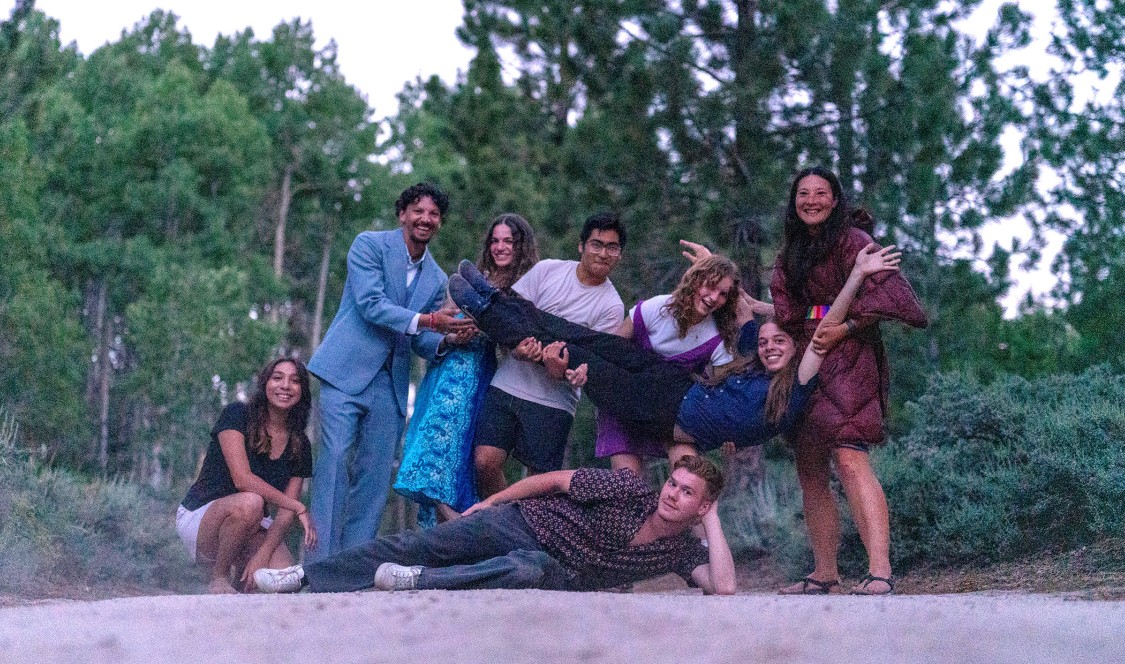The newest program from the Roberts Environmental Center (REC) at Claremont McKenna College took students off the grid for an immersive field experience this summer.
The 2023 Eastern Sierra Research Station Summer Fellows lived in a remote cabin in the Lee Vining/Mono Lake/Mammoth area for a month, engaging in environmental field research and learning to integrate their findings into sustainable policy development.
“The REC creates field-based opportunities for students to learn by doing,” said REC Director Branwen Williams, who is the George Roberts Professor of Environmental Biology in CMC’s new Kravis Department of Integrated Sciences.
“The goals of the Sierra trip are to connect our students with the environment, through an immersive field experience,” she continued. “They learn from local experts about the people that live in the Eastern Sierra and the pressures that their environment is facing. They apply this learning through independent research projects with data collection and analysis.”

Seven students, including four from CMC — Jocelyn Livier ’24, Nathaniel Worley ’24, Daniel Penaloza ’26, and Vijay Jain ’24 — spent their July at the REC Eastern Sierra Research Station, located at the doorstep of the eastern entrance to Yosemite and in a unique natural preserve canyon. The area is home to 46,000 acres of Mono Lake, numerous 12,000+-foot Sierra peaks, and plug-dome volcanoes. The closest town is Lee Vining (pop. 59, elev. 6,780'), which is adjacent to Mono Lake, Mono Basin National Forest Scenic Area, and the Ansel Adams and Hoover wilderness areas.
This vast landscape became the students’ outdoor laboratory and classroom.
Rising CMC senior Livier, an International Relations major with a focus on natural resource management, said the program was the perfect opportunity as she prepares to apply to grad school and ultimately pursue a career in climate tech/green tech.
“I wanted to gain field work experience and, quite literally, get my hands dirty,” Livier said. “As an IR major, I have experience inside the classroom, meaning that I know the policy side of climate tech. Additionally, I have experience in the world of tech. What I was missing was the outdoor experience.”
Livier’s field work consisted of visiting geothermal hot spots and sites throughout Mono County.
“Given that much geothermal extraction had occurred at or below Mammoth, I wanted to explore the active volcanic area that existed above,” she said. “I conducted several surface level analyses that explored the presence of transmissions, wildlife, human intervention, water bodies, and some geochemical analysis. Finally, I researched the need for renewable energy in the area as well as other existing forms of power, such as hydroelectric power dams.”
She plans to continue this work in the fall.
“We were thrilled to get this summer program up and running! For the months leading up to July, we worked with many departments at CMC, and we were on site the week before crawling under the house to make things work,” said CMC’s Sustainability Coordinator and REC Associate Director Kristin Miller, who noted a significant uptick in students — 40 from across the 5Cs — applying this year compared with a previous program that was offered more than 10 years ago.

Liz Thomas ’07, REC Advisory Board member since 2015, participated in a similar program at the REC station as a CMC student. She helped launch this new program and served as onsite advisor. “The program that I ran this summer essentially is what I wish that program had been when I was a student,” said Thomas, who has a graduate degree in environmental science, worked as an environmental consultant and professional outdoor athlete, and currently runs an outdoor digital media company.
Thomas was tasked with leading the syllabus of programming for field trips and speakers, assisting with field work and field work protocol, leading daily discussions on readings and research experiences, and providing guidance and mentoring to students as they developed and completed their research projects. Thomas’ knowledge of the area, the people, and the local environmental and political issues, as well as her background in natural science and social science research, were critical factors in helping her with those tasks.
Her experience living and working in remote environments also came in handy.
“The cabin is remote — truly,” Miller said. “It’s up a two-mile, washed-out dirt road that is an additional two miles out of town — no WI-FI, no neighbors, off-grid — all alone on 160 protected acres.”
‘Spirit of Exploration’
By involving students in real-world environmental issues and training them to analyze the issues from as broad a perspective as possible, taking science, economics, and policy into consideration, the REC strives to cultivate environmental leadership within its student body.
The seven students who participated this summer were the inaugural group in what Miller said the REC plans to be a long line of fellows at the REC Eastern Sierra Research Station.
In addition to field research, students had a full roster of activities, including an ethnobotany walk with Mono Lake Kootzaduka’a Tribal Elder Dean Tonenna and a tour of big horn sheep habitat led by REC Advisory Board member and CMC alumnus Michael Graber ’74. Speakers, readings, and discussions covered local history, geography, flora and fauna, volcanoes, and other topics.
“The students demonstrated eagerness, curiosity, endless patience, flexibility, kindness, and understanding,” Miller said. “They conducted stellar research in a very short window of time with a packed schedule, and their final projects and presentations were unique, interesting, poignant, and educational. Each student gained an appreciation of the area with a genuine spirit of exploration—key goal of the fellowship. They took deep dives into critical local topics, and sparked interest in a variety of research areas, all of which can continue to be pursued.”

Since not all of the data collection is complete, work will continue in the fall, when the REC will also help students analyze their data.
Worley, a Government and Public Policy major, who is the director of the student-run podcast, Free Food for Thought, conducted interviews with local experts and leaders about their opinions on the Los Angeles Department of Water and Power’s water diversion from Mono Lake. In the fall, he will interview individuals at LADWP. He said the experience at the REC Eastern Sierra Research Station gave him “a greater sense of purpose and connection to the natural environment.”
“Everything felt more meaningful out there, especially when living with a small group with little outside contact. My understanding of local issues and how small towns might deal with them also grew as I sat down and spoke with community members.”
For Thomas, the highlight of the experience was watching the students grow. She said carrying out an independent research project as an undergraduate is a special experience and one of the benefits of the program.
“I think they gained a lot of confidence in doing their own first independent research project,” she said. “Some of the more advanced students walked away with data that they can use in their senior thesis. And for those students who are interested in going to graduate school, it looks great on a resume.”
“One of the readings that we looked at about undergraduate research experiences like this had statistics that undergraduates are more likely to do well in their upper-level science courses or to stick with science or to get into graduate school,” Thomas added. “So, this sort of grounding experience is very powerful.”

